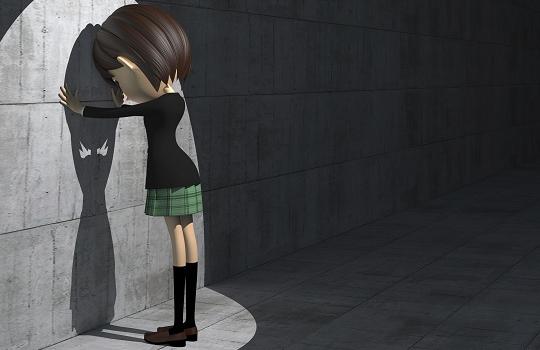In a previous HRZone article, I discussed the ‘shadow side’ of personality, i.e. those bits of ourselves which we normally keep hidden, but which emerge when we’re too stressed, tired or drunk to keep up a polite façade any longer. There are three broad trends – under pressure some of us move towards others, some move away from others and some move against others.
Over the next two articles, I’m exploring the eleven individual characteristics within those broad categories. These characteristics tend to be people’s strengths, taken too far. To bring them to life, I’ve created eleven characters who make up the senior management team of a company that has had a bad year and is facing an uncertain future. They’re attending a company away day to discuss ideas for getting the company back on track…
The moving towards types
Dillie Diligent can be relied upon to do a really thorough job, so she was asked to organise the away day. Nothing has been left to chance – the timetable, the catering, the directions, the presentation materials are all taken care of. She starts getting a bit twitchy when people are slow coming back from a coffee break (“we’ll go off schedule!”) and her frustration is pretty evident when Michelle uses a red pen on the ‘ideas’ flipchart. She made it perfectly clear it’s green for ideas and red for the ‘issues and threats’ flipchart. Dillie’s prepared a meticulous business case for her plans for her department. It takes a lot of persuasion to get her to give just the edited highlights. Surely no one will really understand it unless she takes them through all the detail?
Julian Dutiful is a loyal corporate citizen, who doesn’t like to upset anyone, particularly not someone in authority. He has been dreading the away day. He knows that his boss, Imogen, is going to present her idea for a new product range and is expecting him to support her. The trouble is, his team thinks the idea is a non-starter and he’s inclined to agree. He’s been very evasive and non-committal when they’ve talked about it so far but he’s not sure he’ll get away with that today. He’ll have to get off the fence and he knows Imogen is not going to be happy. He’s also worried that Bob Bold might try and deflect the blame for losing a client on to him. He finds Bob really intimidating and doesn’t know how he’ll handle it, especially if Imogen doesn’t step in to support him. Julian’s so anxious thinking about it all, he can barely eat lunch.
The moving against types
Bob Bold is a confident, competitive guy. He’s generally one of the more dominant voices in the team. He’s got many ideas on how to move the company forward, which he’s eager to share. There are those who blame Bob for the recent loss of one of their major customers. People say he got complacent and could have done more to keep the account. Bob takes no notice of his critics; they don’t have his in-depth understanding of the situation. He’ll happily give people his interpretation of what happened – or, as he sees it, ‘the facts’ – including, of course, the failings of other departments. Julian has a lot to answer for. But actually he’s rather irritated that people are still talking about this. Surely, the best thing to do after a setback is put it behind you and move on. What’s the point in banging on about things you can’t change? Onwards and upwards, that’s Bob’s motto.
Michelle Mischievous has amazing influencing skills. She’s been laying the groundwork for her plans for months – a little snippet thrown into conversation here, a nudge in the right direction there. In the weeks leading up to the away day, she’s been on a charm offensive and now knows exactly where her support lies and who she’s up against. While she’s been talking up her own ideas, she’s also used the opportunity to gently point out the flaws in her rivals’ plans – mischievous types always have rivals – in ways so subtle you’d barely notice it happening. She was tremendously helpful to Dillie in planning some elements of the away day. Which is why, when they split into smaller discussion groups, Bob’s going to find he’s not talking to anyone with any real power, whereas Michelle will have the chairman’s ear.
Colin Colourful is in his element at the away day. He’s rather charismatic and isn’t going to blend into the background. He doesn’t like to think of himself as ‘showy’ but he’s been told he has presence. He dresses well, people notice him; he knows how to hold an audience. The away day is a fantastic opportunity to showcase his ideas, something he does eloquently. In the breaks, he is very entertaining company – people love hearing his anecdotes. Colin leaves the event feeling satisfied with his performance and pleased by how well he got on with his colleagues. He’s certain he has enhanced his reputation. What does he think his colleagues made of the day? Well that’s hard for him to say. Paying attention to other people is not really Colin’s strong point.
Imogen Imaginative is a powerhouse of creativity. She has masses of ideas – some brilliant, some hopelessly impractical – and you never know quite what she might say or do next. Some colleagues find her a breath of fresh air but others dismiss her as weird. Not many people would turn up to the away day in a polka dot hat, for example, but Imogen is so unself-conscious she gets away with it. She has some big ideas which reinterpret the company’s core values and reach out to a new demographic, primarily through a new product range. She’s prepared an exciting presentation which includes uplifting music, inspiring quotes, some beautiful imagery and a reference to Shakespeare’s Henry V. She’s hoping this will be her ‘Agincourt moment’. No one could accuse Imogen of subjecting them to ‘Death by Powerpoint’ but some of her colleagues are left wondering what exactly this grand vision has to do with her proposed range of digitally-controlled sandwich toasters.
In the next article, we’ll catch up with the ‘moving away’ types.






